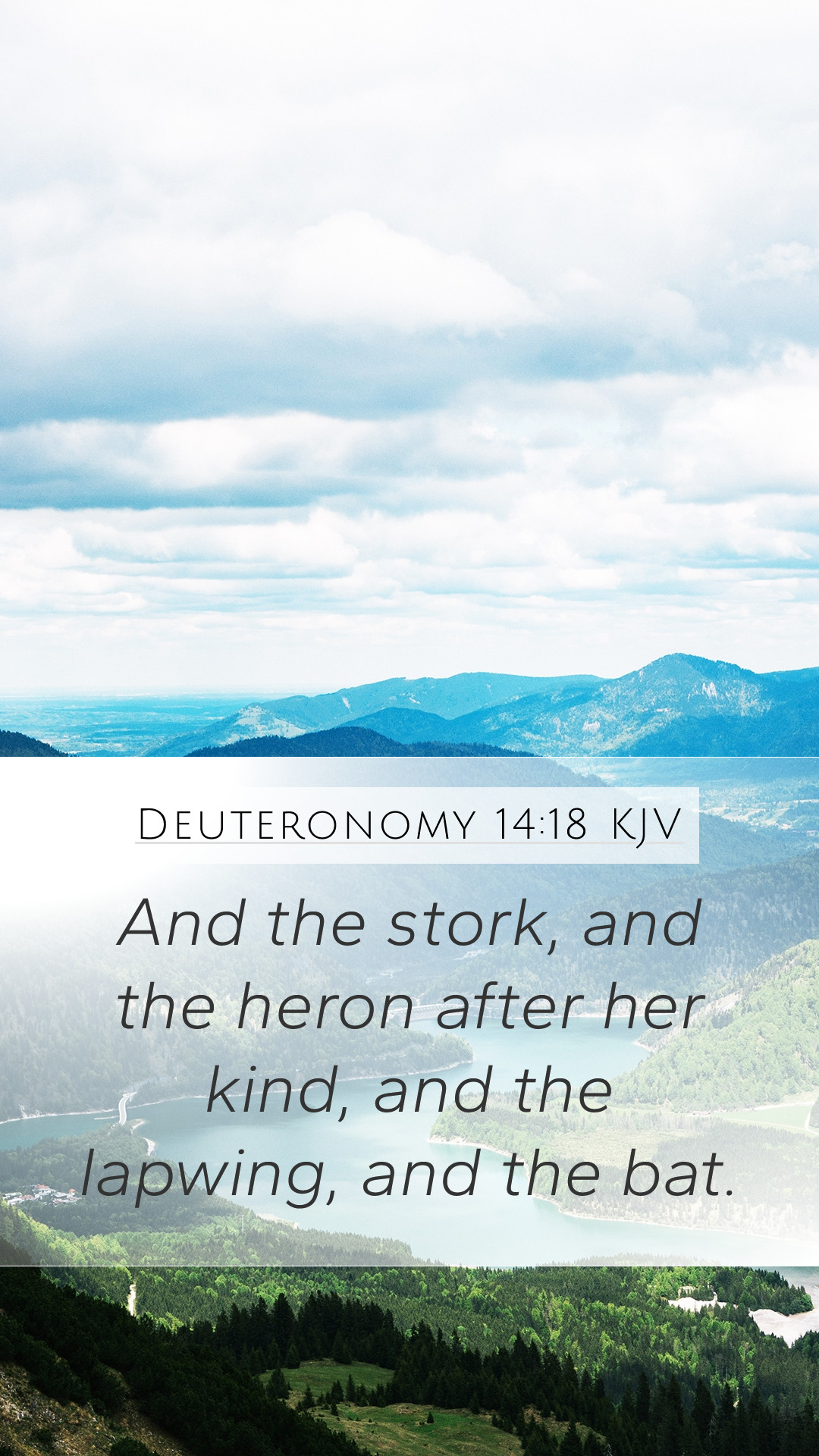Understanding Deuteronomy 14:18
Bible Verse: Deuteronomy 14:18 - "But the swan, and the pelican, and the gier-eagle, and the bat."
Context and Overview
In this scripture, we find God's instructions regarding clean and unclean animals for the children of Israel. This guidance is part of a larger set of laws provided in Deuteronomy, aimed at distinguishing the Israelites from other nations and helping them live in a way that honors God. Following the commentary by noted theologians such as Matthew Henry, Albert Barnes, and Adam Clarke, we gather deeper insights into the implications of this verse.
Meaning of Deuteronomy 14:18
The animals mentioned in this verse fall into the category of unclean according to the Mosaic Law. The Hebrew dietary laws listed here are significant for several reasons:
- Divine Command: The classification of clean and unclean animals reflects God's sovereignty and authority in setting moral and dietary guidelines.
- Spiritual Implications: Following these laws is symbolic of obedience to God's will and a means to be spiritually set apart.
- Cultural Identity: Adherence to these dietary restrictions helped maintain the cultural and religious identity of the Israelites amidst neighboring pagan nations.
Commentary Insights
Matthew Henry Commentary
Matthew Henry emphasizes that the dietary laws serve not only for health but as a means of elevating spiritual consciousness among the Israelites. He notes that God's laws are designed to shape their character and nurture a holy community dedicated to Him.
Albert Barnes' Notes on the Bible
Albert Barnes provides a detailed classification of the listed animals, focusing on the symbolic meanings behind cleanliness and uncleanliness. He suggests these laws teach Israel about separation, obedience, and the necessity of discernment in both spiritual and physical matters.
Adam Clarke's Commentary
Adam Clarke argues that while these dietary laws were specific to the Israelites, they also serve as moral instructions for all believers, stressing the importance of purity in every aspect of life. He advocates for understanding these laws within the context of a deeper relationship with God, where choices reflect faith and devotion.
Application and Significance
In today's context, Deuteronomy 14:18 invites reflection on our own lives. Here are some key applications:
- Moral Choices: Just as the Israelites made choices about food, individuals today must consider the implications of their choices on their spiritual lives.
- Holiness: Live a life that reflects the holiness of God, avoiding things that lead to spiritual compromise.
- Community Practices: Engage in practices that promote community integrity and fidelity to God’s commands.
Cross References
- Leviticus 11:13-19 - Further description of unclean animals.
- Isaiah 66:17 - Prophecy regarding unclean practices.
- Romans 14:14 - Discussion on clean and unclean foods in the New Testament context.
- 1 Timothy 4:4-5 - Teaching on creation and dietary restrictions under grace.
Conclusion
Deuteronomy 14:18, though a part of the Old Testament law, carries significant implications for spiritual life, exemplifying the call for holiness and separation from worldly practices. By understanding this scripture through the lens of respected biblical commentaries, believers gain rich insights into the meaning of Bible verses and their application in daily life.


